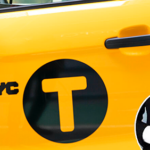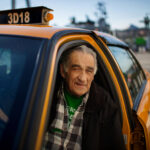
Before he ever took the oath as New York City’s youngest mayor — and the first Muslim to hold that office — Zohran Mamdani was best known for something far less glamorous: refusing to eat.
Back in 2021, Mamdani was a 30-year-old freshman Assembly member from Queens who planted himself in City Hall Park with a simple but powerful vow — to fast until New York’s struggling taxi drivers got the debt relief they deserved. “I will be on strike for as long as it takes,” he declared, announcing that every call, meeting, and bit of legislative work would be done from the protest site itself.
At the time, the city’s taxi industry was on the brink. Years of inflated medallion prices and predatory loans had crushed thousands of drivers under impossible debt. Many had lost their homes, their life savings — some even their lives. Mamdani’s hunger strike wasn’t a political stunt; it was an act of solidarity with a workforce drowning in despair.
The Fifteen Days That Changed Everything
The protest stretched on for 15 tense days. On the fifth day, Mamdani and other officials escalated the fight, blocking traffic in Lower Manhattan as an act of civil disobedience. Police moved in, zip-tying and arresting them as cameras rolled. By day 13, the toll was visible. Veteran driver Richard Chow — a diabetic who’d lost his brother to the same financial crisis — was now in a wheelchair. “We don’t have a choice,” he said. “This is our last moment to fight.”
Two days later, the city gave in. Then-Mayor Bill de Blasio agreed to cap medallion debt at $170,000, with monthly payments limited to about $1,100. The crowd at City Hall Park erupted. Mamdani, gaunt from fasting, raised his fist and shouted, “This is just the beginning of solidarity. We are going to fight together until there is nothing left in this world to win.”
Turning Protest Into Policy
That victory laid the groundwork for a lasting change. Under the new program, medallion owners could restructure their loans with a $30,000 grant, secure a fixed interest rate of 7.3% or less, and rely on city-backed guarantees that protected them from default.
When applications opened in 2022, Mamdani reflected on what it meant. “We broke our 15-day hunger strike with the news of a tentative agreement,” he said. “Today, that dream comes alive — finally providing NYC taxi drivers the relief they deserve.”
The Road to City Hall
Fast forward to 2025, and that same community helped propel Mamdani into history. His mayoral campaign leaned on his record of activism — not in boardrooms or policy memos, but on the pavement with workers. Late at night, he could be found at LaGuardia Airport greeting cab drivers in English, Hindi, and Urdu.
“For South Asians growing up in New York City, taxis were how we saw ourselves woven into the fabric of this place,” Mamdani told supporters in one of his campaign stops.
In one campaign video, Richard Chow — the same driver who once wheeled himself to the protest line — greeted him with a smile: “Hello, Mr. Mayor Mamdani. I love you. We miss you.”
Mamdani’s reply was simple, heartfelt, and full of the same solidarity that fueled his hunger strike years before:
“I miss you, too.”






